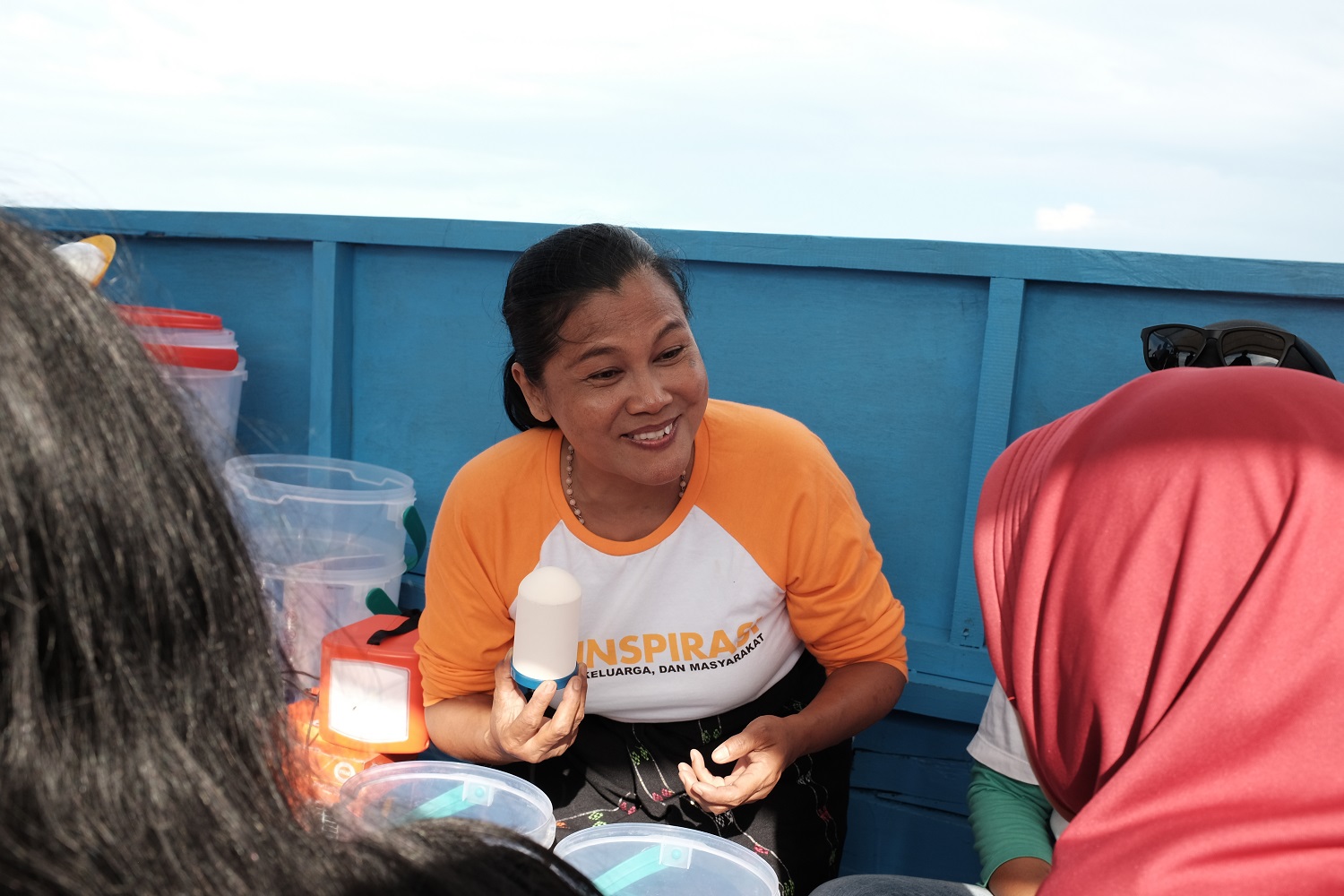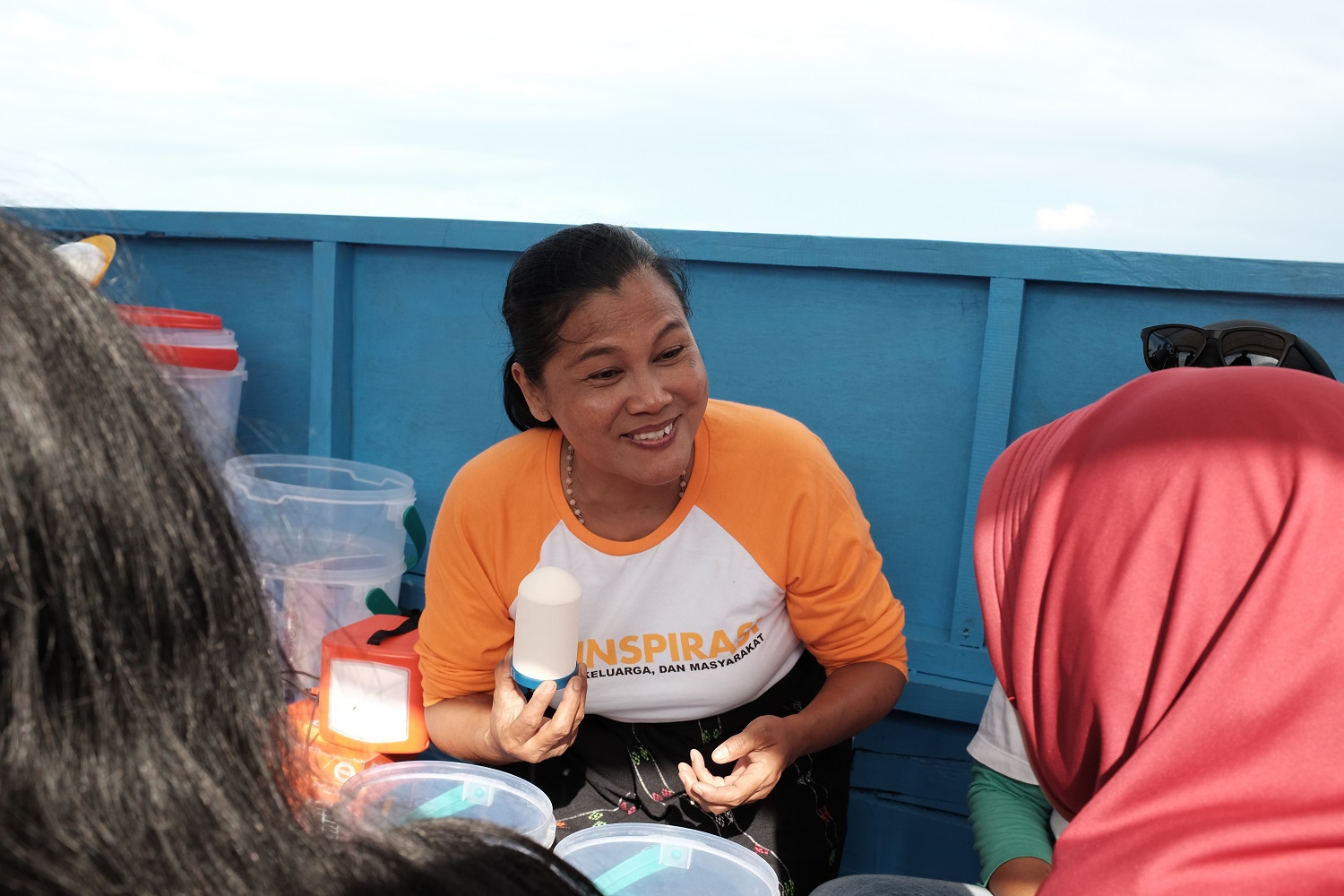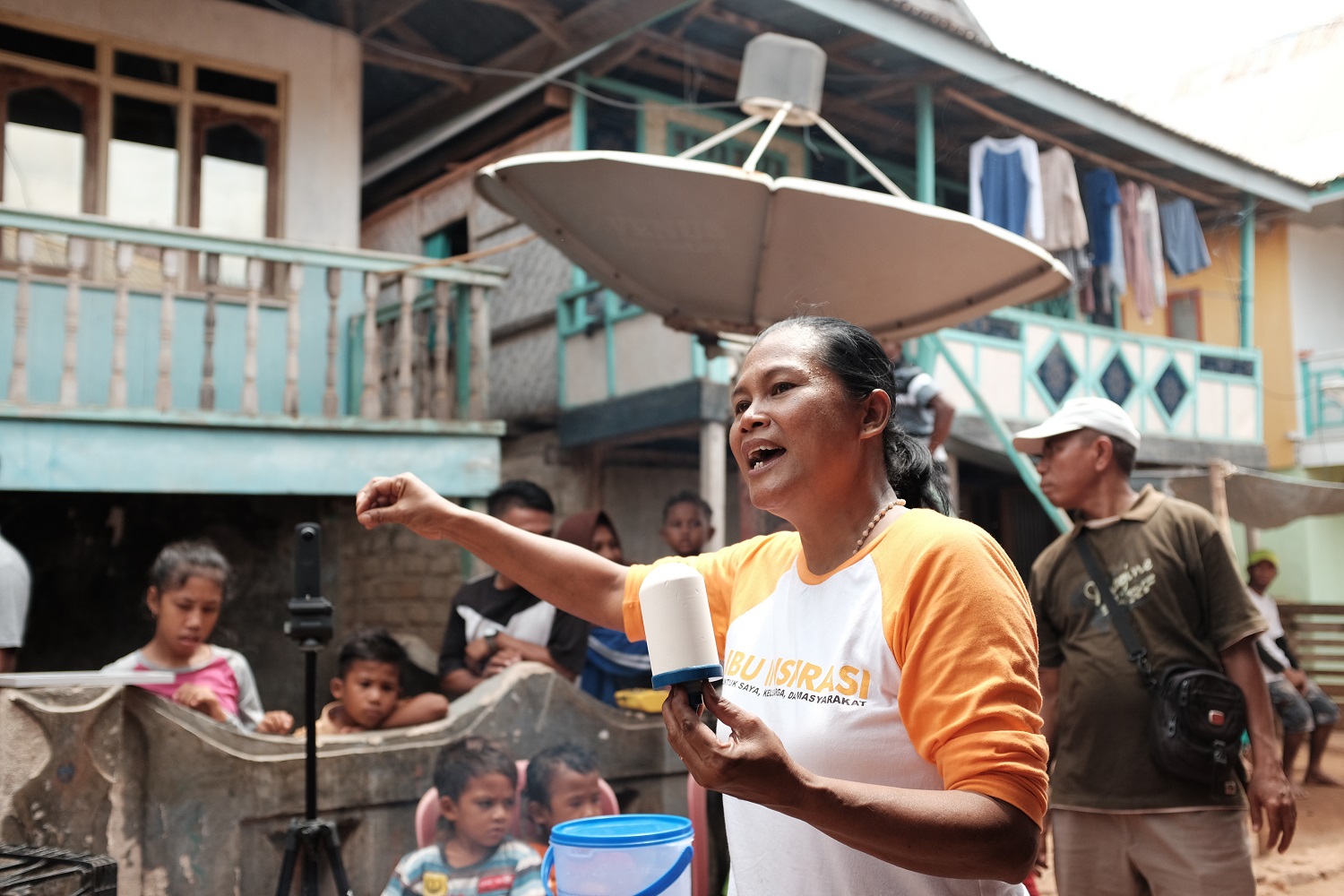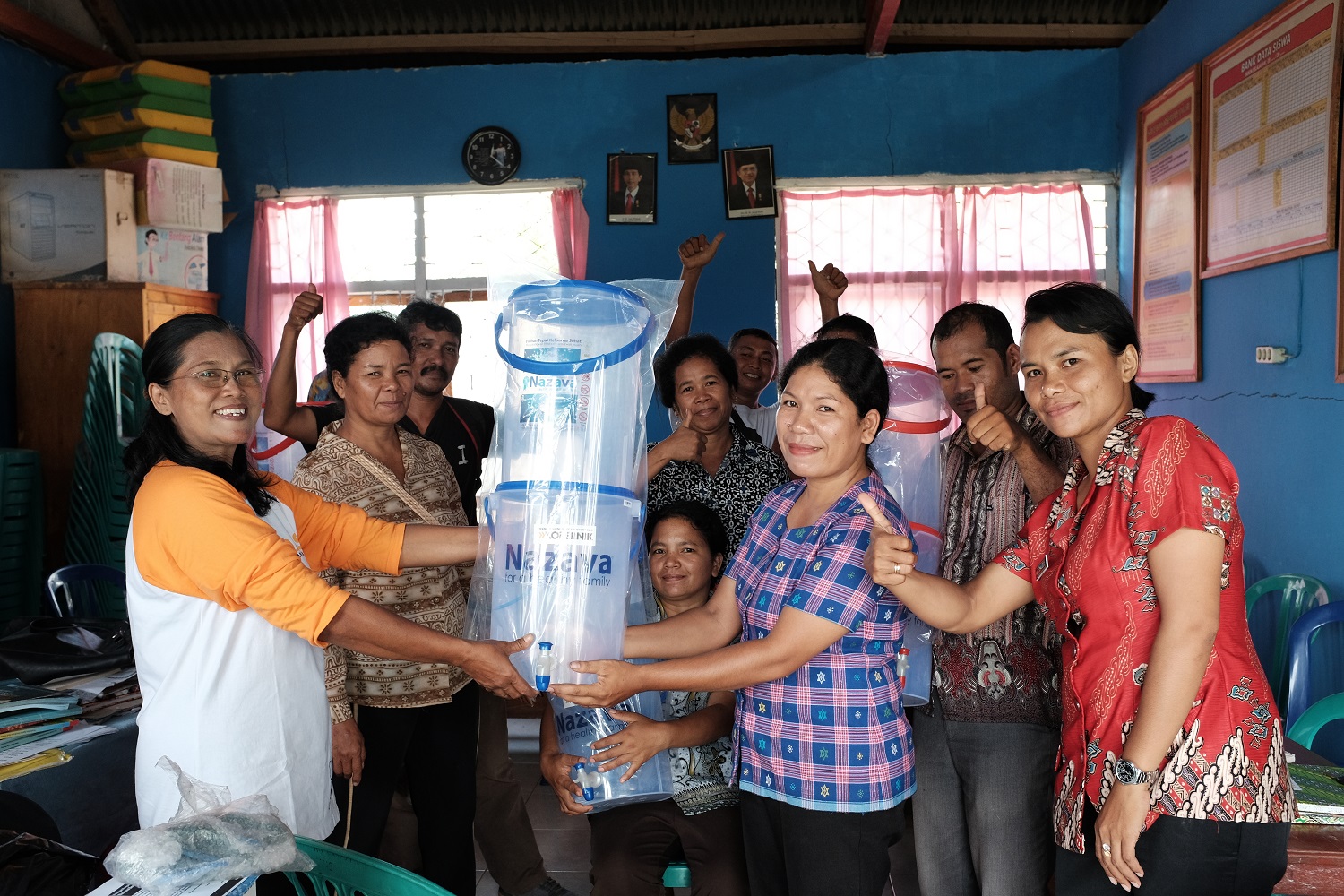
The butterfly effect is a phrase often used to describe how small causes can have larger effects. Initially used in weather predictions, the term later became popular among science writers and was eventually taken up by popular culture.
Its meaning has expanded with the widespread use; nowadays, it has become a common reference to how small events might have a rippling effect that causes much larger events to take place.
I know one woman capable of starting a butterfly effect in her community. Her name is Margaretha Subekti, or Ibu Bekti, one of our ‘wonder women’ in Flores.
Ibu Bekti share Kopernik’s vision in women empowerment and clean energy technologies
(Photo credit: Riesa Putri/Kopernik)
Born and raised in Central Java, Ibu Bekti moved 1,400 KM to Flores in 1990 after she got married. She felt that Kopernik shared her vision in environmental and women empowerment issues, and began selling clean energy technologies in her community with the Wonder Women program in 2014.
“I saw how the water filters can help households in Flores, especially women who were boiling their drinking water with traditional wood stoves,” Ibu Bekti told me when I recently visited her house, a cozy space decorated with recycled bags and trinkets made of plastic that she had collected from household goods like vegetable oil packages.
“Women spend hours doing daily household work, starting with cooking, house cleaning and taking care of the children. The water filters help them save time to prepare drinking water for their family,” she added.
Ibu Bekti promoting clean technologies to villagers in neighboring small islands
(Photo credit: Riesa Putri/Kopernik)
Although she now lives in Labuan Bajo — land of the Komodo dragon — Ibu Bekti frequently travels to promote clean energy technologies to the villages in neighboring small islands near the Komodo National Park as well as villages in West Manggarai, a district of more than 250,000 residents (Manggarai Barat in Figures, 2017) with almost 20% living below the poverty line.
One of the villages is Werang, Sano Nggoang, a village in West Manggarai a two-hour drive away from Labuan Bajo. Access to electricity and safe drinking water in Werang remains limited. Most of the villagers at the time used kerosene lights and boiled groundwater to drink before knowing that the solar lights and water filters exist.
Mama Mia was one of the villagers who bought a water filter when Ibu Bekti first came to Werang. “The water filters really help us, because every day we (women) have to draw the water from the well that is 100 meters away from our house,” Mama Mia said. Ibu Bekti and Mama Mia later teamed up to share their experiences with villagers in Werang. Now, more than half of the villagers use water filters.
“Boiling water using open fire and firewood stoves cause a great mass of smoke, and women and children are the ones who breathe the smoke every day,” Ibu Bekti said. “I educated the villagers about safe drinking water and why water is one of the most important aspects in daily life.”
Ibu Bekti has impacted lives in many households through her act of promoting clean technologies in rural areas. (Photo credit: Riesa Putri/Kopernik)
Using water filters, instead of boiling water, can reduce exposure to smoke, fire hazards, and risk of injuries — health and safety risks associated with the process of boiling large amounts of water. People who shift to water filters from boiling water are also on track to save more money.
Kopernik’s three-year impact assessment of the Wonder Women program (2014 - 2017) estimated that one water filter could save $36 a year in fuel expenditure. Furthermore, with time saved from using the water filters instead of boiling water, women can use the free time for more productive work such as setting up a side business selling snacks and household goods, assisting their families in the farm or giving more attention to their children.
Her efforts in supporting communities in the last mile towards their betterment go beyond clean technologies. At her Rumah Pekerti — Smart House — community group, women and children in the neighborhood receive support. Many of those who were estranged from their families or suffer illnesses have sought solace in her house. Ibu Bekti also organizes training for the women, from making handicrafts to organic vegetable farming.
Through her simple acts of promoting clean energy technologies and supporting women in rural areas, Ibu Bekti has touched the lives of many people in Werang village and beyond, giving them the opportunity to become more productive and having an improved quality of life — a butterfly effect in action.
In the words of Ibu Bekti: “Start everything with small actions. Start with ourselves in daily life."





